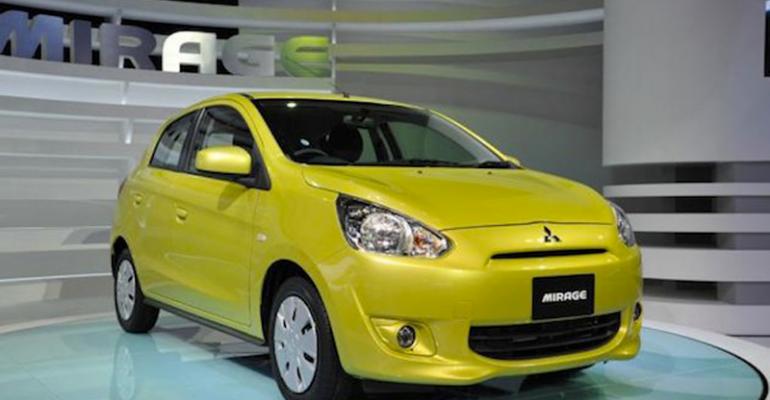Automakers in Thailand are worried about a possible oversupply of vehicles as the government and the industry prepare for the second phase of the eco-car program.
Federation of Thai Industries automotive industry club spokesman Surapong Paisitpattanapong tells the Bangkok Post manufacturers awarded a license in the first phase are required to increase annual production to 100,000 units in their fifth year of eco-car production.
Mitsubishi, Honda, Toyota, Nissan and Suzuki joined the first phase, with combined annual capacity of 585,000 units. Nissan began eco-car production in 2010, Honda in 2011, Mitsubishi and Suzuki last year. Toyota launches its entry later this year.
Surapong says seven eco-car models now are for sale in the domestic and export markets and at least 500,000 units will be built annually.
The newspaper says the Board of Investment was set to approve criteria for the second phase of the project, requiring each automaker to invest at least TB6.5 billion ($209.3 million) in eco-car production, up from TB5 billion ($161 million) in the first phase launched in 2007.
Surapong says most automakers are concerned the launch of the second phase is too early and will draw new players to the segment.
Board of Investment Deputy Secretary-General Chokdee Kaewsang says existing eco-car makers and newcomers have expressed plans to create new versions of the green cars.
Excise tax for an eco-car is 14%, compared with the normal 17% rate. Vehicles compatible with E-85 gasoline/ethanol fuel are taxed at 12%.
Chokdee says the first phase of the eco-car project attracted investment of TB50 billion ($1.6 billion). “The government has listed the small fuel-efficient car project among policies to spur economic growth, as the economy is experiencing a slowdown,” he tells the newspaper.





